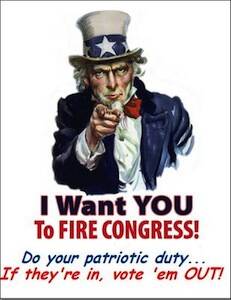Washington has yet to figure out exactly how it will do it, but it will spend the rest of the winter once again pissing off everyone who follows politics. President Barack Obama did his part by lowering expectations for the rest of his term in last week’s State of the Union address. House Republicans are now assuring us that they’ll force another time-wasting standoff over raising the national debt. See Slate’s David Weigel on “How This Round of Debt Limit Kabuki Will End,” and assume he didn’t write the headline with the word that Slate’s Jon Lackman flagged as an ill-informed political cliché in 2010. (At least the headline doesn’t redundantly refer to “Debt Limit Kabuki Theater.”)
The Washington Post’s Robert Costa reports on the decision facing the Republican House:
Several House members told The Washington Post on Monday that Republican leaders have narrowed their list of possible debt-limit strategies to two options: trading a one-year extension for approval of the Keystone XL pipeline, or trading a one-year extension for repeal of a provision of the Affordable Care Act.
Both plans, which were first discussed last week at the House GOP’s annual retreat in Cambridge, Md., will be debated further Tuesday morning, when House Republicans meet at the Capitol. House Speaker John A. Boehner (R-Ohio) is said to be open to either approach, as long as it can win heavy GOP support.
Publicly fighting over which demand they’ll eventually have to drop is a good way to maximize disappointment for everyone. Diehard proponents of a balanced budget amendment, which has no chance of making it through Congress, can be especially embittered by not even making it into the lead of Costa’s story.
Voters are the most disappointed of all. Last month, a Gallup poll found that only 17 percent of Americans thought most members of Congress deserve re-election (“a new nadir”). And the latest aggregate of polls at Real Clear Politics suggests that 63 percent of Americans think the country is on the “wrong track.”
This bad mood is unlikely to mean a throw-out-the-bums election. Eric McGhee, writing for the Monkey Cage blog, concludes, “anti-incumbent elections are largely a myth,” with big-turnover elections almost entirely sweeping out members of one party (for example, the Democrats in 2010).
It makes sense that divided government would lead to widespread dissatisfaction with American politics. Despite the lazy narrative of voters “choosing” to put one party in the White House and another in control of Congress as a folksy, commonsense way to keep the rascals in line, almost no one votes this way. (Split-ticket voting is in long-term decline, and slightly more people voted for Democratic House candidates in 2012, even as the Republicans kept control.) When both major parties — or three, if you count the Tea Party separately — are blocked from getting much done, most voters are going to be frustrated with politics.
The last time that the RCP average had less than a majority claiming the country was on the “wrong track” was June 2009, when the Democrats controlled the White House and both chambers of Congress (including a filibuster-proof majority in the Senate). This isn’t a testament to the popularity of the Democratic Party but to the fact that at least America’s blue half could be optimistic in such circumstances. If the Republicans take the presidency and Congress in 2016, the share of voters satisfied with government could again hit the dizzying height of 50 percent.
Image from The Monkey Cage.








